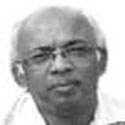
By Mohammad Badrul Ahsan
13 Nov. 2015
The Argentine director Benjamin Naishtat's debut feature last year was History of Fear, which explores how terror of the unknown can become a destructive force. It shows that fear initially just inconveniences people as they are afraid to open their doors for strangers. But then their reactions to things they don't understand eventually affect the society as a whole. Fear does to human mind what heat does to plastic.
That state of mind is now creeping up on us as distortions are about to begin, if haven't already begun. We are afraid of talking to strangers. Many of us don't answer phone calls from unknown numbers. Unidentified emails are readily deleted. I know of people who don't want to get out of the house unless it's absolutely essential. We are fast becoming a paranoid nation where people are continuously looking over their shoulders.
It's because fear confronts us on many fronts. It comes from run-of-the-mill thugs and crooks. It comes from the law keepers. Neighbourhood goons, political musclemen, con men, imposters, militants and terrorists are all having a field day. We are as if walking through a minefield, careful with every step and trying not to get blown up.
This fresh paroxysm of fear adds to the existing layers of fears. The fears of adulterated food, political uncertainty, traffic congestions, accidents, corruption, deception, manipulation, and exploitation have already shrivelled our existence. The new layers are making the burden of fear heavier on us.
It doesn't, however, make us the only nation living in fear. A Gallup poll conducted in 2013 showed that two-thirds of the people surveyed in 134 countries said they felt safe walking alone at night. But less than half the population in 31 countries felt that way.
Some of these countries, where fear rules, have prosperous economies and stable governments. For example, South Africa is one of the world's largest emerging economies but three out of four people there reported feeling unsafe. Botswana is considered to have among the most stable governments in its region, while its citizens are among the most fearful in the world.
Experts argue that this sense of fear comes with the territory of rapid economic development. They call it the “growing pain” when rising income inequalities create a deep vein of injustice leading to rising crime rates and fears of crime. But none of the above explains the fear that's gripping us. Neither the stable government nor rapid economic turnaround is the cause. While crimes are always rooted in economic, political and religious reasons, the fear factor that is slowly enveloping us, like a serpent pulling the prey into its coils, is rooted in our confusion about ourselves.
This organic fear doesn't only make us feel unsafe to walk alone at night. It also makes us feel unsafe even while sleeping inside our homes. We are also afraid to speak our minds in the fear of saying the wrong things in the wrong place in front of the wrong people. Muggers, robbers and extortionists are at least corporeal threats compared to the invisible and the unknown ones when the victims have no way to tell who is going to strike when for what reason.
The reason why a more affluent nation that we are today is more scared than it was during its poorer days is that the number of unknowns has gone up. Frankly, we don't know anybody or anything these days, familiar things having this terrible capacity to turn abruptly unfamiliar. We not only shudder at the sight of an approaching stranger but also suspect the intentions of friends and family members sitting right next to us.
And it has to be said that never before in our history have we lived in so much fear. Never before have we suffered from so much anxiety to find our enemies hiding in the crowd. Never before has this nation had to cope with so much doubt that savagely blurs the line between good and evil.
Besides weakening the immune system, living under constant threat can also impair formation of long-term memories and damage certain parts of the brain. There are many other psychosomatic disorders resulted by fear, which can have debilitating effects on individuals. And when individuals are affected it has its knock-on effects, first on the families and then on the nation.
Every government in this country has cultivated fear and taken it to the next level. That escalation has marked a depraved transformation each time as this nation jumped from frying pan into fire. US president Franklin Delano Roosevelt said in his first inaugural address: “Only thing we have to fear is fear itself.” Uncannily true for us, the inverse of that saying is stewing us in our own juice because we have got nothing but everything to fear.
Mohammad Badrul Ahsan is the Editor of weekly First News and an opinion writer for The Daily Star.
Source: thedailystar.net/op-ed/politics/nation-drowning-its-own-fear-171496

No comments:
Post a Comment